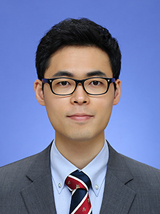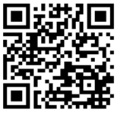|
|
Controversies in the Amendment to the Korean Refugee Law (2)Time£º2021-06-03
Lawyer Jiang Sung Sik (Korea Coexistence Law Firm) The Ministry of Justice finally formulated a special countermeasure, which is the decision system for refugee disqualification included in this amendment. The content is as follows: The Minister of Justice may make a decision (hereinafter referred to as "non-eligibility decision") that the refugee applicant meets any of the following numbers. 1. In the past, a person who made an unqualified decision on an application for refugee recognition or did not recognize a refugee decision to apply again. However, if the refugee claimant proves that there is a major change in circumstances, it will not be included. 2. In the event that a person who has previously decided to cancel or revoke a refugee determination or who believes that an application for refugee determination or an objection application has been withdrawn under Article 19, Article 2 applies again However, if the refugee claimant proves that there is a major change in circumstances, it will not be included. ¢ÛThe Minister of Justice may omit the interview survey for those who meet the requirements of Item 1, and decide whether they are unqualified based on other information in the application form. If you become an unqualified object, you can simply skip the interview survey. In other words, the review can be conducted more quickly. In this way, people who abuse refugee applications can be reviewed as soon as possible, and those who really need protection can be reviewed more carefully. Second, introduce a clear and unreasonable refugee application system. The Minister of Justice clearly pointed out that the refugee applicant was not recognized as a refugee under the Act when the refugee applicant was only for the purpose of extending the stay, disputes between the causes of death, or economic reasons, etc., which clearly did not belong to the refugees under the law, and made no recognition of the refugee. decision. This system is also designed to shorten the refugee review period as much as possible to solve cases of abuse of refugee applications. If it is obvious that the refugee application is unreasonable, the review period for opposition applications will be shortened to 2 months (Article 21 of the Refugee Law Amendment Act) Item 8: The general review period for opposition applications is 6 months). In addition, the litigation period will be shortened from the date of receipt of the decision to within 30 days (Article 44, Item 2 of the Refugee Law Amendment Act; the general litigation period is within 90 days), and employment will also be restricted (Refugee Law Amendment Article 44). Human rights groups expressed strong opposition to these two changes. The Justice Party also expressed its opposition. The main reason is that South Korea¡¯s refugee recognition rate is much lower than that of other countries. According to statistics from the Ministry of Justice, based on the end of 2021.3, among all the cases reviewed, the rate of recognition by refugees was 2.9%, and the rate of protection including humanitarian stay permits was 9.2%. In other developed countries, there are many places where the refugee rate or protection rate exceeds 3% to 40%, so it is indeed very low. Human rights groups argue that the current refugee identification rate is so low that if the introduction of a disqualification decision system separates unreasonable refugee applications, the number of cases of inadequate review on the grounds of rapid review will increase, and refugee applicants are prepared to object The time for application or litigation will also be shortened, and the refugee identification rate will also drop further. However, the refugee recognition rate decreases with the increase in the number of refugees. Therefore, if the abuse of refugee claimants¡¯ welfare is reduced and the number of abusers of refugee claims decreases, then faster and more accurate examination of those who really need protection will be carried out, and the refugee recognition rate It will increase instead. In addition, after the amendment was announced by the legislation, it was different from before. Citizen groups in favor of the amendment also voiced their voices. Although it is mainly a civic group that holds a negative position on the refugee system, it agrees with the purpose of the amendment to sanction the abuse of refugee claimants, and a number of groups have jointly issued a formal statement. The voices of civil organizations that oppose the influx of refugees have always been organized and logically inadequate compared with the voices of human rights organizations working to protect refugees. Therefore, it is difficult to reflect the various opinions of citizens in a balanced manner. In terms of policy, even now there is a certain degree of equilibrium and active discussions have begun. This is a fortunate thing. This laid the foundation for the government to make more balanced policy decisions. |

















